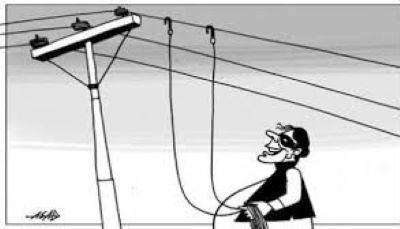The Nigerian electricity sector is facing a grim outlook, says Mr. Chinedu Bosah, the National Coordinator of the Coalition for Affordable and Regular Electricity (CARE).
Bosah raised the alarm on Wednesday in an interview with the News Agency of Nigeria (NAN).
He said it was essential to address the issues plaguing the industry.
According to him, the performance of Distribution Companies (DISCOs) in 2024 has been “abysmal.”
Bosah said the sector was marked by widespread consumer complaints about erratic power supply and sky-high electricity billing.
The energy expert criticised the DISCOs for prioritising profits over infrastructure investment, which had left the power supply system in disarray.
One of the significant issues affecting the sector, according to him, is the pervasive problem of estimated billing.
“Approximately 55 per cent of households connected to the national grid, around seven million, still lack meters.
“Meters, which should be provided free of charge by the DISCOs, have become an expensive commodity due to a profit-driven meter supply mechanism.
“In 2024, many consumers were forced to purchase prepaid meters at exorbitant prices from Meter Asset Providers (MAP), exacerbating the financial strain on households.
“This is a clear example of how the privatisation of the sector has turned it into a money-spinning venture at the expense of ordinary Nigerians,” he said.
NAN reports that the electricity tariffs have also soared, with Bosah warning that the current structure is becoming unaffordable for many Nigerians.
He compared the high Band A tariff to an “apartheid-styled” system, where only the wealthy could afford power, leaving the majority in darkness or consuming minimal electricity.
According to him, this is a stark reminder that electricity should be considered a basic right, not a privilege.
Bosah argued that the sector needed to shift away from privatisation and toward a more democratic control, where the needs of the people are prioritised over profits.
He also noted that vandalism of electricity infrastructure was another persistent issue, attributed to rising poverty and the lack of effective policing.
Bosah emphasised the need for stronger community engagement and democratic control over local security forces to protect critical power infrastructure.
“A significant factor contributing to the sector’s crisis is the shortage of gas for power generation.
“As a country rich in oil and gas resources, Nigeria should be investing more in gas exploration and transportation to ensure a steady and affordable supply for power plants.
“However, the government’s lack of investment and reliance on multinational companies have led to high gas prices, further compounding the sector’s challenges,” he explained.
Bosah called for a reduction in gas prices from $2.4 per MMBTU to below $1 per MMBTU to enable more power generation and improve the economy.
According to him, the Transmission Company of Nigeria (TCN), which manages the country’s electricity grid, has also faced severe shortcomings in 2024.
Bosah criticised the outdated infrastructure and frequent grid collapses, which left the nation in darkness for hours at a time.
“The most recent grid failure, which occurred on Dec. 11, marked the 12th collapse of the year.
“This highlighted the pressing need for modernisation and investment in the transmission network.
“The core issues in Nigeria’s power sector—neglect, lack of investment, and failed privatisation—have led to a system in disarray, with generating plants operating at a fraction of their installed capacity.
“Despite having the potential to generate 14,000MW of electricity, the country struggles to produce even 4,000MW on average, further illustrating the scale of the crisis,” he said.
He added that if public funds “currently being misallocated” were invested in the power sector, Nigeria could achieve affordable, uninterrupted power supply.
The solution, he insisted, was in nationalising the sector and placing it under the democratic control of workers and communities.
Bosah said without such a bold step, the sector would continue to suffer, with the current state of chaos and underperformance extending into 2025 and beyond. (NAN)


